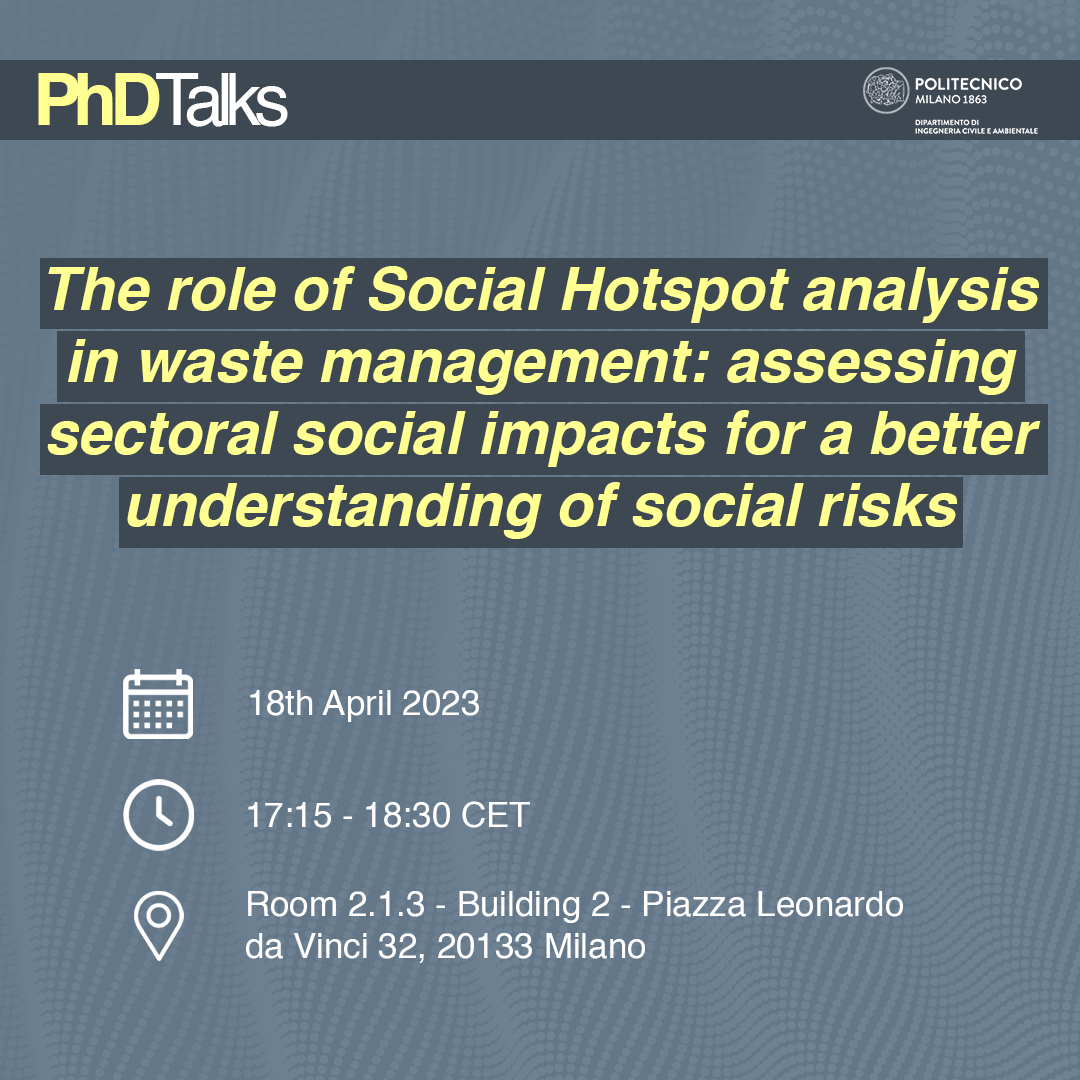
- This event has passed.
The role of Social Hotspot analysis in waste management: assessing sectoral social impacts for a better understanding of social risks
18 April 2023 @ 17:15 - 18:30

We are glad to announce that our next PhDTalks Seminar will be held on Tuesday 18th April in Room 2.1.3 (Building 2), from 5:15 pm to 6:30 pm CET.
PhDTalks is a series of seminars and discussions between PhD students. The events are aimed at providing a place to network and get in contact with many of the projects developed in our department.
Speaker Giuseppe Cecere will talk about “The role of Social Hotspot analysis in waste management: assessing sectoral social impacts for a better understanding of social risks”.
At the end of each event a small refreshment funded by the department will be available.
You can watch the event online by clicking here.
Abstract:
Social Life Cycle Assessment (S-LCA) is a methodology developed to assess the negative and positive social impacts of products and services, along their life cycle. The new Guidelines for Social Life Cycle Assessment of Products together with the Methodological Sheets, published in 2021 by the United Nations Environment Programme, provide a roadmap to help stakeholders in the assessment of social impacts of products’ life cycles. However, applications are hindered by the high sensitivity of the data under investigation and the relative novelty of the methodology. The Social Hotspot analysis allows, as a preventive measure and through secondary data, to identify the social issues that should be focused on during risk assessment. This type of analysis that allows the identification of the most sensitive themes can be used as a first step in the application of the S-LCA. In the waste sector, the application of methodologies to assess social impacts could be particularly useful. Waste management facilities often suffer from strong protests both during construction and operation. Phenomena such as Not In My Backyard (NIMBY) syndrome and Locally Unwanted Land Use (LULU) are very common during the planning and implementation of this type of facilities. Most of these objections are often due to a bad communication approach on both sides and a denial of potential social and environmental impacts by plant operators. Using the Product Social Impact Life Cycle Assessment (PSILCA) database, this study aims to identify the social hotspots that characterise the waste and wastewater management industry sector in the Italian context. In order to create a suitable reference scale, the results for Italy were compared with the results of several European countries. The result is an industrial sector risk assessment, calibrated on the European context, which can be used as a first step in the evaluation of subcategories and indicators to be prioritised in the assessment of social impacts in the context of waste and wastewater management facilities.
Speaker’s bio:
Giuseppe is a PhD Candidate in Environmental and Infrastracture Engineering (37° cycle) at Politecnico di Milano. Since 2020, he has been working with the AWARE research group. For his PhD project, he is working on the application of Life Cycle Thinking methodologies to the waste management sector. He holds a Master’s degree from the University of Padua and a Bachelor’s degree from the University of Naples ‘Federico II’.
